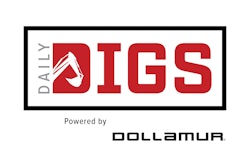|
Copyright 2013 Gannett Company, Inc. All Rights Reserved USA TODAY |
|
November 7, 2013 Thursday
CHASE EDITION |
|
SPORTS; Pg. 1C
|
|
1599 words
|
| What's in a name? Plenty of money; College coaches creatively up earnings while playing is anything but lucrative |
|
Steve Berkowitz, @ByBerkowitz, USA TODAY Sports
|
|
At a time when none of his players can make money off their fame in college sports, Clemson football coach Dabo Swinney has trademarked his name. Ohio State is in the process of trademarking coach Urban Meyer's name and the phrase "Urban Meyer Knows," U.S. Patent and Trademark Office records show. Kansas State has a detailed licensing agreement to use the name and likeness of Bill Snyder. Washington coach Steve Sarkisian negotiated the right to approve all uses of his name, voice, signature or likeness. It's a trend across the country. Yet if a player at any of these schools doesn't like the way he looks in an ad promoting the football program, his only power to change it is to make a request -- which the school is free to honor or reject. In federal court and among those who run major-college sports, debate rages over NCAA amateurism rules and the rights of athletes, who receive scholarships that arguably are worth well more than $100,000 a year but are not compensated for the use of their names and likenesses, such as in action photographs sold by some schools or on replica jerseys bearing the numbers of star players. There is no debate among the coaches already in the money: They are arriving at increasingly creative ways to define and protect their rights and financial interests. Swinney has a deal under Clemson's licensing program to sell merchandise bearing his name. His agent has opened talks with Clemson athletics director Dan Radakovich about adding a separate licensing agreement to Swinney's contract. "I would say that next to Nick Saban (of Alabama), Dabo's name and likeness probably means as much to" Clemson as any football coach's name and likeness means to a school, says Swinney's agent, Mike Brown. Kansas State, home to Bill Snyder Family Stadium, might disagree. And it might offer its six-page license agreement with Snyder as proof. Chris Petersen has a similar deal at Boise State, where football and "Coach Pete" are synonymous. "I don't know if I could trademark the name Dan," Clemson's Radakovich says with a chuckle. "But people like Urban and Dabo -- those are unique -- and everybody has to take advantage of what opportunities are placed in front of them. "I don't know that any of us know exactly where all of this is going to go, but I think that if you have the ability to (make these types of arrangements), it's another protection either for the (coach) or for the university as a lot of these new opportunities begin to unfold." Under NCAA rules, student-athletes can't be paid for use of their names and likenesses; even if they were, it's hard to know what percentage of the roughly 10,000 scholarship players at Football Bowl Subdivision schools would have market value. Local businesses might be interested in deals with players from nearby schools. But unless teams had collective deals to be divided among all of the players, the biggest deals would most likely go to the biggest stars. "It would be interesting to go back and see how much money was generated to the University of Florida athletic department by the sale of Tim Tebow jerseys," Brown says. Value tied to school? Yet sales of a jersey are not necessarily an infallible measuring stick. It leads to a central question for coaches and players: Is the value of their name and likeness because of the power of their personal brand or is it largely a function of their association with a given school? It could be argued either way, and the answer could change. For instance, the current value of Saban's name undoubtedly exceeds that of in-state rival Gus Malzahn at Auburn. Why? Saban has won national titles at Alabama and LSU; Malzahn might be a rising star, but he is in his first season coaching Auburn. Whatever the value is, coaches are moving to protect it. Consider Sarkisian -- or Sark, as he is often called. When he was hired as Washington's coach in December2008, "Bark for Sark" became a popular slogan around Seattle. But "Sark" also had appeal beyond references to the mascot. In June2010, a Kirkland, Wash., resident submitted an application to trademark the term "Sark Tank." The Patent and Trademark Office rejected it, in part, because Sarkisian hadn't consented. "We live in a world where technology and everything else is creating more of these types of opportunities. And coaches are increasingly becoming more active in, and cognizant of, that area," says Gary Uberstine, Sarkisian's agent. Swinney's trademark stems from a nickname that evolved from a sibling being unable to pronounce his given name, William, and instead calling him "Dat Boy." Its potential value flows from Swinney's quick success at Clemson. In 2008, after being elevated to interim coach in the middle of what had become a flailing season, Swinney led the Tigers to a bowl game. Soon thereafter, the word "interim" disappeared from his title. "When he was the interim coach, people started manufacturing T-shirts and things like that, so ... I made the decision, 'We're going to trademark that name and protect it,'" Brown says. Operated under the umbrella of Clemson's agreement with a licensing agency used by many schools, Collegiate Licensing Co., Swinney's personal deal is the only one CLC has on behalf of an active coach, company spokesman Andrew Giangola says. Brown says royalties have been minimal, but he says he's been speaking with a clothing manufacturer about a Swinney line of casual wear. "I think there's a value to Dabo's name and likeness, and it's to the point now where it can be broken out separately and compensated for separately," Brown says. South Carolina's deal with Steve Spurrier allows it to cash in on Spurrier's name in myriad ways, including a line of signature clothing and hats. Players release rights While coaches secure their rights, players typically sign theirs away. One of Swinney's players, senior cornerback Darius Robinson, is among five active college athletes who have joined former UCLA basketball player Ed O'Bannon and former Arizona State and Nebraska football player Sam Keller as named plaintiffs in a lawsuit against the NCAA concerning the use of college athletes' names and likenesses. The lawsuit has put a spotlight on an NCAA release form players routinely sign that allows the organization and others to use their names and likenesses to promote NCAA championships and events. The NCAA maintains that athletes can play regardless of whether they sign the release. But the lawsuit has revealed a more detailed form used by Big Ten Conference schools that conference Commissioner Jim Delany said in a signed statement in March 2013 was being required of all conference athletes. Washington also has its own form; while players can opt out, "I have never been involved in a situation where a student-athlete did not want to be involved in promotional activity," athletics department spokesman Carter Henderson said via e-mail. Even with the restrictions on what they receive in exchange for playing, there is little doubt that a typical major-college football player on scholarship receives a valuable package of goods and services. In March2011, a USA TODAY Sports analysis found that a men's basketball scholarship at one of the FBS schools was worth at least $120,000 annually. Using the example of Texas A&M quarterback Johnny Manziel, sports law expert Gary Roberts, former dean of the Indiana University law school in Indianapolis, tells USA TODAY Sports that Manziel and his brand have "acquired a great deal value (from him) playing for Texas A&M, because Texas A&M is a showcase program. Now, he's not allowed to exploit that value while he's at Texas A&M, but there's value building up in his brand." Roberts summed up a question the courts might answer, adding, "Now, is it right morally and legally that coaches can so fully exploit the value that rests in their skills and publicity rights when athletes cannot?" Detailed agreements Coaches' contracts do grant schools wide-ranging use of their names, images and likenesses -- a key to the multimedia rights deals that compensate coaches for their TV and radio shows and bring millions of dollars to the schools. Snyder's separate license agreement with Kansas State acknowledges that the right to use his name in conjunction with the stadium "was previously acquired by the University from Snyder and for which no further consideration is required or to be provided." But the clear trend is for coaches to seek more control, as well as the financial planning advantages that a separate license agreement or similar arrangement can provide. Petersen's license deal says that if Boise State wants to make a product incorporating his name, image or likeness, a sample must be provided to Petersen for his approval. The school is barred from selling the product if it's "reasonably disapproved" by Petersen. Even coaches' dealings with non-university charities can be complex. In May, Meyer agreed to make TV commercials with prominent Ohio auto dealer Jeff Wyler to promote breast cancer awareness and the availability of free mammograms at one of Wyler's dealerships in exchange for a $100,000 payment to Meyer's foundation. The terms required a five-page document including a specific and limited grant of rights to Meyer's name, voice, picture and likeness -- and ended with Ohio State athletics director Gene Smith's signature. Wyler said the member of his organization who handled the deal found it "more detailed than he would have expected." It's a different world from 10 years ago, when Ohio State's name-and-likeness agreement with then-coach Jim Tressel was two paragraphs. |
|
November 7, 2013
|
Terms and Conditions Privacy Policy



































